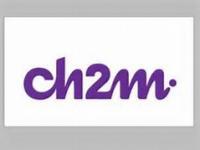
A settlement has been reached in a whistleblower class action lawsuit brought against ReadyOne Industries Inc, previously known as the National Center for Employment of the Disabled (NCED), who is accused of knowingly submitting false certifications regarding the annual percentages of direct labor hours performed by people with severe disabilities.
The whistleblower's share in the recovery was not determined.
The government's case stems from a whistleblower lawsuit filed in 2006. NCED was a participant in the AbilityOne® Program, which creates employment opportunities for people who are blind or have other significant disabilities in the manufacture and delivery of products and services to the federal government. The program uses the purchasing power of the federal government to buy approved products and services from participating, community-based nonprofit agencies nationwide. These community-based nonprofit agencies, like NCED, must ensure that 75 percent of all annual direct labor hours on certain government contracts are performed by employees who are blind or severely disabled. The program is managed by the Committee for Purchase From People Who Are Blind or Severely Disabled, which is a federal agency. The United States alleged that between 2000 and 2006, NCED employed a large number of non-disabled employees to work on contracts for the manufacture of archival boxes, apparel and other items, and did not appropriately account for their hours as part of the overall ratios it certified and submitted to the committee.









